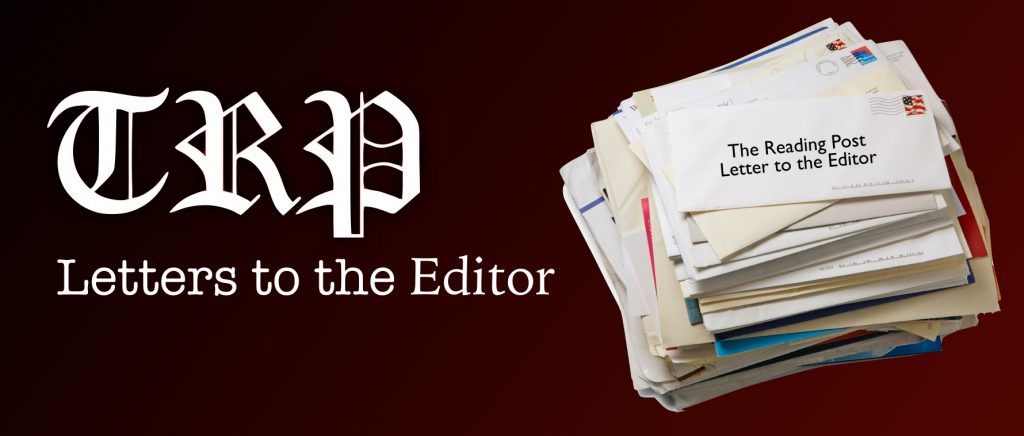
The Reading Post accepts Letters to the Editor. All letters must be signed. The Reading Post reserves the right to edit or not publish any letters received. Letters do not represent the views or opinions of the Post. editor@thereadingpost.com
Dog walking is very popular at the Reading town forest. Many dog owners are responsible and clean up after their dogs, many others do not. Dog waste is not the same as wild animal waste due to diet. Coyote waste, for example, is dry, smaller and will be composed mostly of hair from the previous night’s bunny dinner whereas dog waste is wet smelly and sticky.
Dog feces can threaten to natural resources at the Town Forest, especially if they are allowed to accumulate. It has been estimated that the average dog produces three-quarters of a pound of waste a day. That amounts to over 270 pounds of dog poop a year! The U.S. Environmental Protection Agency recognizes that animal feces, including dog feces, can potentially be contributors of non-point source pollution (see references for US EPA website address). Cryptosporidium, Giardia, and Salmonella, Streptococcal, and E. coli can all be transmitted via dog feces.
When these contaminants run-off into waterways, they can degrade water quality, release compounds harmful to aquatic organisms, and increase nutrient loading that can cause excessive algal growth. The Ipswich River runs through the Reading Town Forest and the Forest itself drains into the Ipswich River. The river and surrounding wetlands provide not only habitat, recreational opportunities but valuable storage that prevents heavy storms from flooding Reading homes and roadways, as well as drinking water to 350,000 people in the 14 towns downstream.
Furthermore, many parasites are also transmitted via feces, such as roundworm and tapeworm. When infected droppings are left on the ground, viable eggs persist in the soil for a long time. This presents a hazard to both people and dogs that come into contact with the soil, for they can become infected. And finally, accumulations of dog feces along trails certainly can be an unpleasant sight and a nuisance should people inadvertently step in it.
Best practice is to pick up your dog waste and dispose of it safely in the trash. Picking up dog waste in the Town Forest plays an important role in reducing the contaminate load to the Ipswich River, protecting the wildlife and preserving the natural beauty of the Town Forest.
Town Forest Committee
Bill Sullivan, Chair
